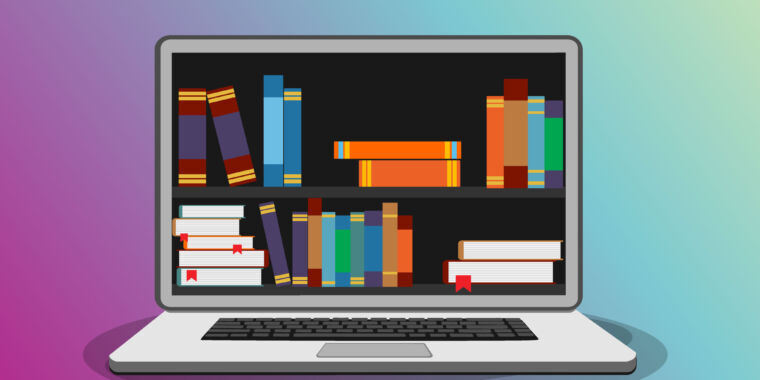- cross-posted to:
- usnews@lemy.lol
- cross-posted to:
- usnews@lemy.lol
In an open letter to publishers, more than 30,000 readers, researchers, and authors begged for access to the books to be restored in the open library, claiming the takedowns dealt “a serious blow to lower-income families, people with disabilities, rural communities, and LGBTQ+ people, among many others,” who may not have access to a local library or feel “safe accessing the information they need in public.”
During a press briefing following arguments in court Friday, IA founder Brewster Kahle said that “those voices weren’t being heard.” Judges appeared primarily focused on understanding how IA’s digital lending potentially hurts publishers’ profits in the ebook licensing market, rather than on how publishers’ costly ebook licensing potentially harms readers.



The IAs point is that they should not have to do that, partly because of first sale doctrine. They bought each ebook, and only lend out that copy, the exact same as libraries do now.
1 bought copy, 1 lend. That’s a fair and simple system that mimics hundreds of years of physical book lending.
Their other point is that the societal good of allowing anyone in the world to educate themselves for free far, far outweigh the value of monetary gain for publishers. Since copyright is intended to help society, their interpretation is the better application of it.
Then write new laws. Digitizing the book is already relying on fair use. Judges aren’t lawmakers, and this case doesn’t have the tiniest hint of the tiniest shred of a leg to stand on.
There is no first sale doctrine for digital. There is no such thing as ownership of a “digital copy” to begin with. The framework doesn’t exist. You have a license.
Again, it’s their point that they dont need to change the law, just that the law should just be applied better.
Thats what the court will decide.
There’s no possible way to apply the law where the Internet Archive is permitted to do their lending program. It very clearly is illegal copyright infringement that does not come anywhere close to fair use.
The judges do not have the authority to completely overrule both the text of the law and the massive body of precedent. The Supreme Court could, except the Constitution explicitly grants Congress the right to regulate IP how they see fit, and the law is super clear that you can’t do anything that resembles what IA is doing in any way.